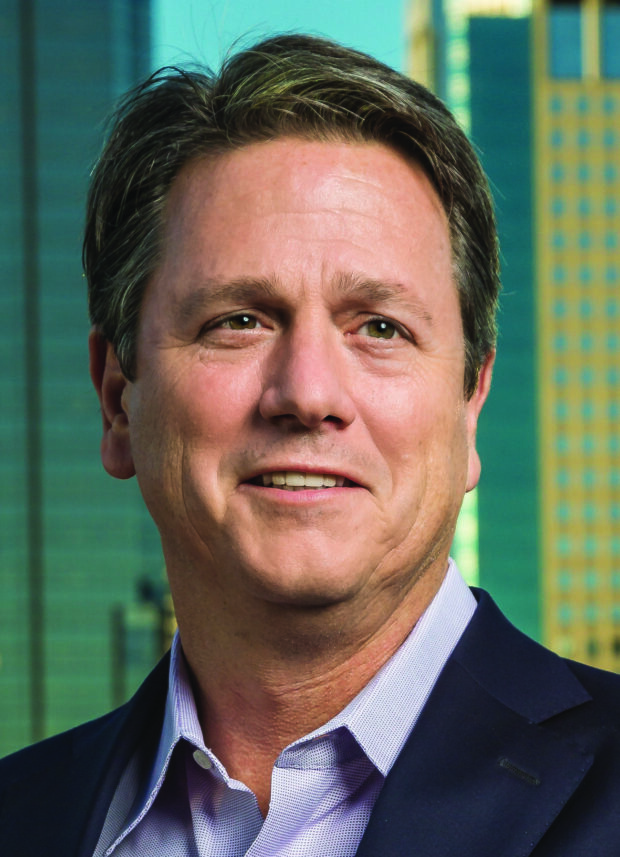HOME | ABOUT US | MEDIA KIT | CONTACT US | INQUIRE
HOME | ABOUT US | MEDIA KIT | CONTACT US | INQUIRE

But Maday was just getting started. In the years since, Maday:
Co-founded the private-equity firm Rock Island Capital (2005).
And folks, he’s still actively engaged with every one of those ventures, including the roles of chairman and CEO at SpecChem.
In his spare (!) time, Maday has served on the board of the Nelson-Atkins Museum of Art, the Greater Kansas City Community Foundation (“I love what they do and how they help facilitate giving,” he says), and of the Victory Project, a philanthropic offshoot of Sporting KC that serves children with serious illnesses. And, of course, he’s still active with the American Royal, where he’s been a fixture since 1993, paying homage to his rural roots growing up near St. Joseph.
His robust levels of engagement derive directly from his vision, both for business on a personal level, and for the region, as a corporate citizen.
Consider the soccer piece alone. Who, in 2005, would have expected that Kansas City would become not just a national center of excellence for soccer, but a global one? That’s what’s happened with Sporting’s evolution from pro soccer team to cultural centerpiece, fostering support for youth and high-school programs and setting the stage for last year’s opening of the $75 million National Training and Coaching Development Center, not far from the $200 million stadium the pro team unveiled in 2011.
Maday credits his partners, including Cerner execs Cliff Illig and the late Neal Patterson, with much of the vision. But seriously—who else saw that coming?
“That saying about the puck in hockey is true in soccer as well,” Maday says. “Don’t go where the ball is, go where it’s being kicked. Twelve years ago, when we bought the Wizards from Lamar Hunt, he kept saying ‘it’s coming, it’s coming.’ I remember watching a game with him, the Wizards were playing Costa Rica in 2006 on a cold, rainy day, and maybe 1,200 people were there watching. But it was coming, and what happened is, the world is shrinking, it’s the world’s sport, Americans don’t like losing and we want to win at that game, too.”
As a youth baseball coach at the time, Maday saw interest in that sport fading and soccer supplanting it, played by children from that era who are about the age of this year’s 40 Under Forty class. “Kansas City has become the soccer capital of America,” Maday muses. “It’s a crazy thought. When we built the stadium, we had to go to Italy to receive the award for the best soccer stadium in the world. We’ve been recognized by the best soccer cultures in the world for what we’ve created here. That’s phenomenal.”
Soccer’s emergence here has come as the entire region has seen seismic shifts in its business ecosystem—as a global center for logistics and transportation, as the world’s pre-eminent location for animal-health research and manufacturing, and as a cool place for prospective fortysomethings of future years to live, work and play.
Those factors up the region’s appeal to young workers—and future leaders—to come to Kansas City.
“When I got out of Mizzou, young people were going to Chicago, Denver or Dallas. It’s not that those cities did anything bad, but we got it right,” Maday says. “Great cities need great assets.”
And great networks.
“I think Ingram’s has done a great job, starting something like 40 Under Forty 20 years ago,” Maday said. “It created—this is not the right word—but kind of a club, with some qualifications to be admitted. I think relationships are everything. One of the great things about this city is that it’s still a place where your word is your bond. Relationships matter; people do business with people they like and trust. That comes out of relationships, whether it’s 40 Under Forty, or your church or boards, whatever it is.
“I was invited to be in that group, I was honored, but I had no expectations of it leading to anything. The reality is, it introduced me to 39 other wonderful people, subsequent and prior classes, and it certainly has been a benefit. The more people you know in this town, the better.”
At 53, with a senior in college and a senior in high school, “Elizabeth and I are ready to be empty-nesters—that’s hard for me to fathom,” Maday says. “What I would say to this year’s class of 40 Under Forty is, ‘I want to be you guys.’ I still feel like I’m about 37, like I was in 2002, but the reality is, I’m not. I say it with my business partners, “We’re not that generation any more; where our generation is, it’s time to stand up and serve and be leaders in Kansas City. We’re no longer the kids.”